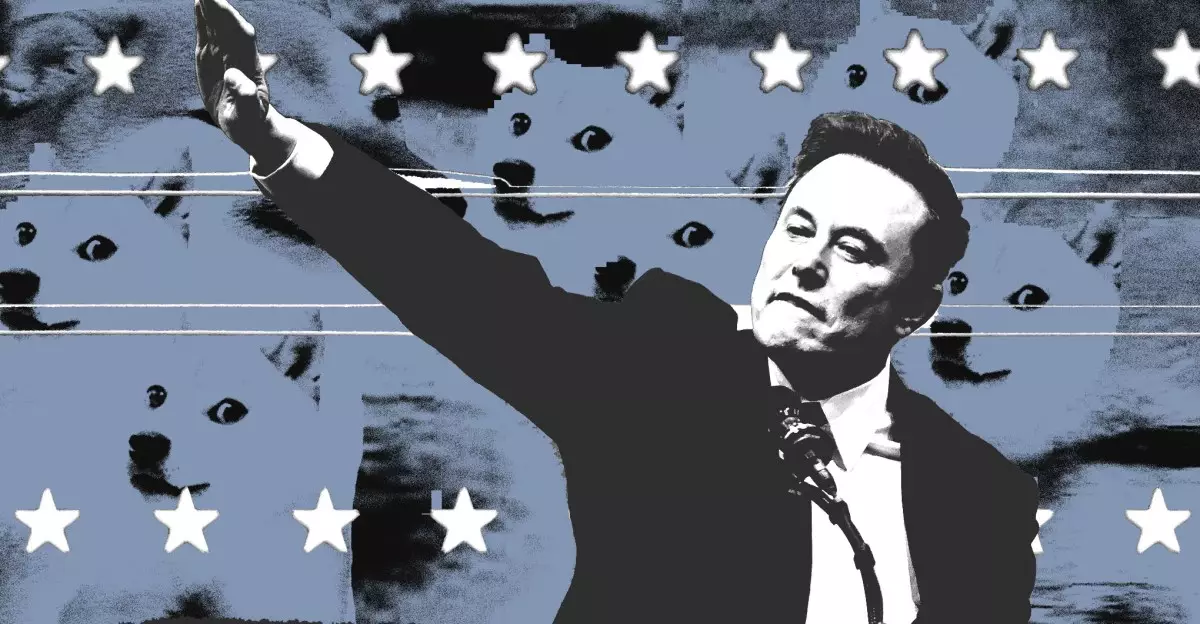In recent events, the intersection of technology, government, and radical ideology has come to the forefront with the resignation of Marko Elez, a 25-year-old staffer at the Department of Government Efficiency (DOGE). The controversy exploded when the Wall Street Journal revealed Elez’s affiliation with a now-deleted social media account that espoused not only racist views but also advocated for what can only be described as a eugenic immigration policy. This incident highlights the alarming resurgence of extremist ideas in our political landscape, particularly among the youth within influential government roles.
The revelations surrounding Elez are not occurring in a vacuum. They reflect a broader shift in political discourse where traditional notions of civility and inclusion are being subverted by radicalized ideologies. The posts from the deleted account, such as the claim that “99% of Indian H1Bs will be replaced by slightly smarter LLMs” and calls for the repeal of the Civil Rights Act, exemplify a troubling mindset that views immigration and diversity not as strengths, but as threats to a perceived ‘American’ identity that is increasingly constructed around exclusionary criteria.
Elez’s background is equally revealing; he has tinged affiliations with notable companies like SpaceX and X, as well as ties to Elon Musk’s attempted overhaul of government functions. This connection is significant as Musk’s administration has been under scrutiny for attempting to dismantle programs that advocate for diversity, equity, and inclusion—an initiative that many claim leans towards a regressive stance on social justice. Elez was reportedly part of a team that had both access to and the authority on government financial transactions, raising concerns about the extent of influence individuals like him may wield in shaping policies that affect millions.
Elez’s resignation is particularly striking given the context of current sociopolitical dynamics. While it’s a common narrative that individuals linked to past administrations, particularly under Trump, have faced backlash when their extremist views come to light, Elez’s case diverges from the trend wherein similar staffers often retain positions despite their controversial rhetoric. The recent hiring of Darren Beattie—whose past associations with white nationalist groups warrant scrutiny—further complicates the narrative. It illustrates a potential double standard where some voices, particularly those espousing the ideologies of white supremacy and eugenics, find shelter within factions of the government.
The phenomenon of what John Ganz coined as “groyperfication” among young conservative staffers indicates a concerning shift, where fringe ideologies often incubated in online spaces seep into formal political structures. The emergence of young right-wingers who are heavily influenced by dangerously radical ideas signifies a strategic repositioning within certain factions of the political landscape. Instead of being marginalized, these ideas are increasingly being validated, normalized, and adopted by individuals in positions of authority.
The consequences of this trend are far-reaching. When ideas that advocate for eugenics and racism are allowed to circulate unchallenged within influential government operations, it sets a dangerous precedent for policy-making and governance. The stark contrast between political rhetoric celebrating diversity and the underlying agendas aimed at dismantling civil rights protections creates a cacophony of dissonance that could threaten the foundational principles of equality and justice.
As citizens, there is a pressing need for vigilance against the proliferation of such ideologies. Policy reporters and activists must remain alert to the insidious ways extremist ideas can infiltrate respected institutions, subtly reshaping the fabric of political discourse and threatening the pillars of a democratic society. Ultimately, the fight against racism and eugenics is far from over, and it is incumbent upon all sectors of society to recommit to inclusivity and the respectful discourse that honors the diversity of human experience.
The resignation of Marko Elez isn’t merely an isolated incident; it signifies a desperate call for introspection within our political systems, challenging us to confront and combat the insidious resurgence of bigotry that threatens the very fabric of our society.


Leave a Reply